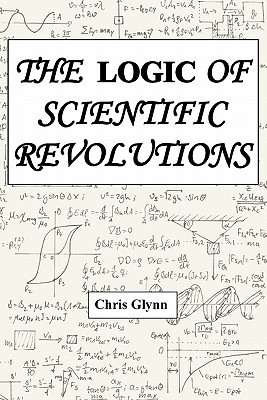
- We will send in 10–14 business days.
- Author: Chris Glynn
- Publisher: CheckPoint Press
- Year: 2011
- Pages: 370
- ISBN-10: 1906628343
- ISBN-13: 9781906628345
- Format: 15.2 x 22.9 x 2.1 cm, minkšti viršeliai
- Language: English
- SAVE -10% with code: EXTRA
Reviews
Description
In this innovative and groundbreaking work, the structure and evolution of scientific theories is examined in meticulous detail and rigorously analysed as never before. For the first time, scientific revolutions are presented as a natural consequence of the evolution of scientific theories and described with mathematical precision. Many new techniques are introduced and with the more precise understanding of the nature of the scientific enterprise obtained thereby, old philosophical problems are cast into a new light and shown to be susceptible to the same rigorous approach by which they may be completely solved. Numerous real examples from the sciences are given and discussed in detail, culminating in some startling results concerning the future development of science and that Holy Grail of physics, the possibility of a final, all-embracing Theory of Everything. Written in an eloquent and engaging style interspersed with occasional flashes of delicious humour, this book is destined to become a classic in the Philosophy of Science. It will doubtless be appreciated equally by philosophers and scientists alike as well as a wider, less specialised audience. Truly an important document and a major contribution to the literature; this is a work for the twenty-first century.
EXTRA 10 % discount with code: EXTRA
The promotion ends in 21d.23:29:54
The discount code is valid when purchasing from 10 €. Discounts do not stack.
- Author: Chris Glynn
- Publisher: CheckPoint Press
- Year: 2011
- Pages: 370
- ISBN-10: 1906628343
- ISBN-13: 9781906628345
- Format: 15.2 x 22.9 x 2.1 cm, minkšti viršeliai
- Language: English English
In this innovative and groundbreaking work, the structure and evolution of scientific theories is examined in meticulous detail and rigorously analysed as never before. For the first time, scientific revolutions are presented as a natural consequence of the evolution of scientific theories and described with mathematical precision. Many new techniques are introduced and with the more precise understanding of the nature of the scientific enterprise obtained thereby, old philosophical problems are cast into a new light and shown to be susceptible to the same rigorous approach by which they may be completely solved. Numerous real examples from the sciences are given and discussed in detail, culminating in some startling results concerning the future development of science and that Holy Grail of physics, the possibility of a final, all-embracing Theory of Everything. Written in an eloquent and engaging style interspersed with occasional flashes of delicious humour, this book is destined to become a classic in the Philosophy of Science. It will doubtless be appreciated equally by philosophers and scientists alike as well as a wider, less specialised audience. Truly an important document and a major contribution to the literature; this is a work for the twenty-first century.


Reviews